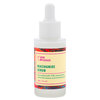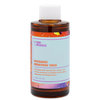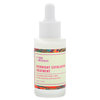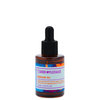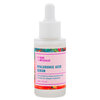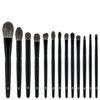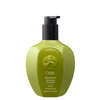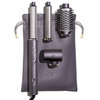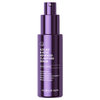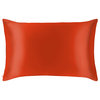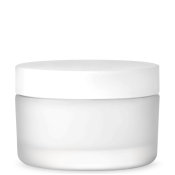
Every winter, like clockwork, my skin becomes painfully dry, raw, and cracked. Despite using a gentle face cleanser, moisturizing constantly, and incorporating moisturizing oils into my skin care routine, I always feel like I’m fighting a losing battle—I live in Chicago, where the air is super dry in the winter.
After listening to me incessantly complain about dry skin, my mom bought me a humidifier as a Christmas gift (what a gal!). I’ve been running it several nights a week, and lo and behold, it’s truly helping my skin retain moisture. I actually wake up with a dewy glow. So I’ve dubbed it my secret winter beauty weapon.
To get some professional intel on the subject, I spoke with Dr. Monika Kiripolsky, a board-certified dermatologistat Obagi Skin Health Institute, who explained how humidifiers work—and whether they’re right for everyone.
How a humidifier works
According to Dr. Kiripolsky, humidifiers add moisture back to the air, which in turn adds moisture to the skin and helps prevent a breakdown of the skin barrier. The little appliances are most beneficial to people who live in dry, arid climates, or climates that become especially dry during the winter (like much of the midwest). And another thing that exacerbates dryness during winter? We’re always cranking up the heat—which often sucks even more moisture out of the air.
But Dr. Kiripolsky believes just about anybody could benefit from the use of a humidifier. “It adds to the overall treatment of a lot of different skin conditions,” she explains.
In addition to helping your skin retain moisture, a humidifier might also help you stave off winter illnesses. In dry weather, the mucous membranes inside the nose and mouth often get dehydrated, making our immune systems more susceptible to bacteria and airborne viruses. “If the barrier is strong from adequate hydration, you’re less likely to get the flu and bacterial colds,” she says.
What type of humidifier is best?
If humidifiers are so great, shouldn’t we put one in every room and use it all the time? Not so fast, cautions Dr. Kiripolsky.
Centralized, whole-house humidifiers can put your residence at an increased risk for mold growth, especially if you live near the ocean. So unless you have a professional come to your house regularly to check mold levels, it’s best to stick to the stand-alone units intended for single-room use.
Dr. Kiripolsky advises turning on the humidifier only at night, and wiping it down frequently to reduce the risk of mold or bacteria growth within the appliance itself. Also, be sure to change out the water frequently. Never turn on the humidifier with stale water that’s been standing in the tank for more than a day. And while some humidifiers come with a compartment which you can add fragrant oils or even Vick’s VapoRub (if you’re feeling stuffy) to diffuse into the air, Dr. Kiripolsky thinks it’s best to skip them. “That may just end up irritating the skin,” she says, and do more harm than good—so go with water only.
Other winter skin tips
It won’t be enough to use a humidifier alone; you have to pair it with a good routine. Dr. Kiripolsky recommends taking lukewarm showers with fragrance-free soaps (such as Dove Beauty Bar), because piping-hot showers dehydrate the skin and strip away its natural oils. Immediately after you shower, apply a high-quality moisturizer when you’re still a bit damp. Dr. Kiripolsky recommends something chemical- and fragrance-free, such as Aquaphor. “It’s one of the best possible things for people with dry, sensitive skin because it really locks in the moisture,” she says. Another great option is rms beauty Raw Coconut Cream.
Dr. Kiripolsky also suggests switching out your laundry detergent if you have sensitive skin. Many brands make fragrance-free versions which are less likely to cause irritation, and that can only be a good thing during moisture-sapping winter weather.
Featured Products
You Might Also Like
-
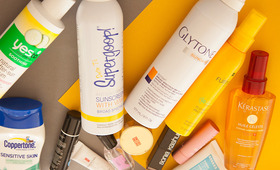
Sun Protection
Summer Beauty Special! A Head To Toe Guide to Suncare Products
- 1138
-
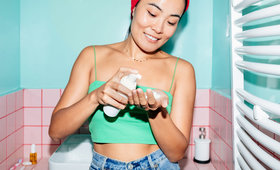
Cleansers
Protect Your Skin Barrier With These Extra-Gentle Face Washes
-
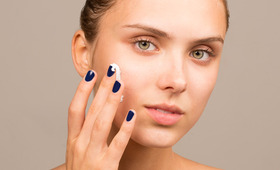
Skincare
4 Important Things to Know About Exfoliating
- 644
-
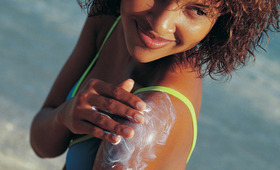
Sun Protection
The Right Way to Apply Sunscreen
- 152
-
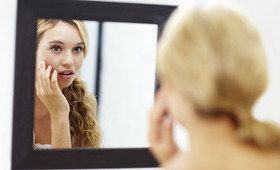
Skincare
6 Habits That May Be Hurting, Rather Than Helping, Your Skin
- 1129
-
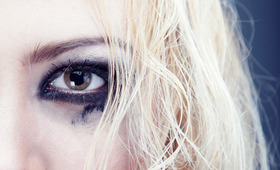
Eye Skincare
What's That Black Stuff in My Eyes?
- 122
-
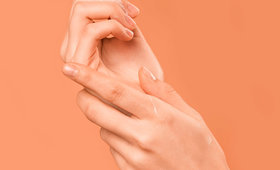
Hand Treatments
7 Hydrating Creams for Extremely Dry Hands
- 55
-
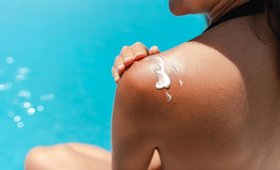
Beautylish Recommends
Does Mineral Sunscreen Protect Skin Better Than Chemical Formulas?



